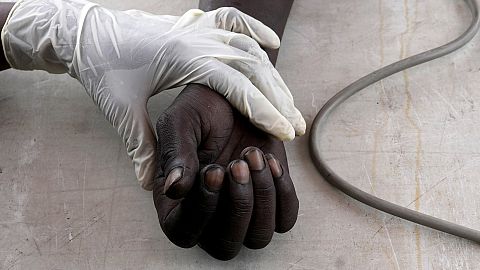Boiling water before drinking it could be "a viable long-term strategy" for reducing global exposure to microplastics, researchers said.
 ADVERTISEMENT
ADVERTISEMENT
Microplastics have been found deep inside our organs and tissue, entering the body through the food and drink we consume and the air we breathe. However, a simple method could help to stop humans from ingesting the potentially harmful nanoparticles.
Boiling water could decrease the concentration of microplastics in drinking water, a new study has found.
Researchers from China tested waters with a different hardness to which they added nanoplastics and microplastics and then boiled them for five minutes.
The process managed to reduce the concentration of nanoplastics from 25 per cent for soft water to 90 per cent for very hard water which contains more minerals, according to the results published last year in the journal Environmental Science & Technology Letters.
"This simple boiling water strategy can 'decontaminate' NMPs [nano and microplastics] from household tap water and has the potential for harmlessly alleviating human intake of NMPs through water consumption," Zimin Yu, a biomedical engineer from Guangzhou Medical University and one of the study authors, said in a statement.
"Drinking boiled water apparently is a viable long-term strategy for reducing global exposure to NMPs," the authors said in their paper, warning that the efficacy may vary from region to region depending on the water quality.
"Drinking boiled water is an ancient tradition in some Asian countries such as China, Vietnam, and Indonesia," the team added.
How does boiling help?
The calcium carbonate, one of the minerals contained in high quantities in hard water, is thought to trap the small plastics in a crust as it forms limescale when the temperature rises.
Researchers from Guangzhou Medical University and Jinan University advised the use of non-plastic kettles and stainless steel filters in order to retain the limescale containing the microplastics.
Microplastics are increasingly recognised as a potential threat to human health, with a growing amount of research linking them to various possible health issues.
Last year, a study linked microplastics present in arteries to a higher risk of heart attack or stroke.
Another study showed that individuals with dementia showed a higher concentration of microplastics in their brain.
However, those studies were observational - comparing data from one group to another - and a causal effect hasn’t been established by researchers.
The Chinese research team believes further study is required to establish if boiling water can keep other artificial materials out of our bodies.
"Our results have ratified a highly feasible strategy to reduce human NMP exposure and established the foundation for further investigations with a much larger number of samples," the authors said.
















